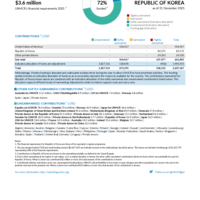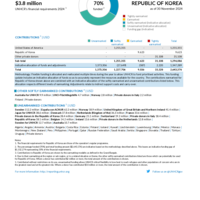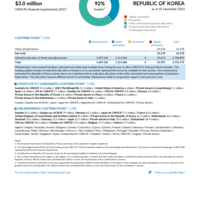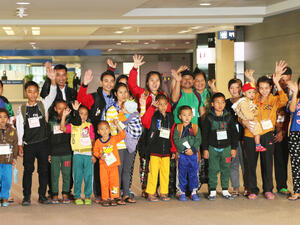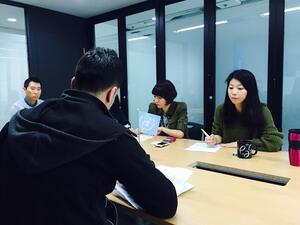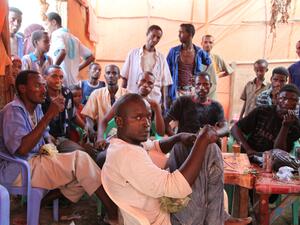Republic of Korea
Republic of Korea
UNHCR works with the Republic of Korea to strengthen refugee protection at home and expand its global leadership in supporting displaced and stateless people.
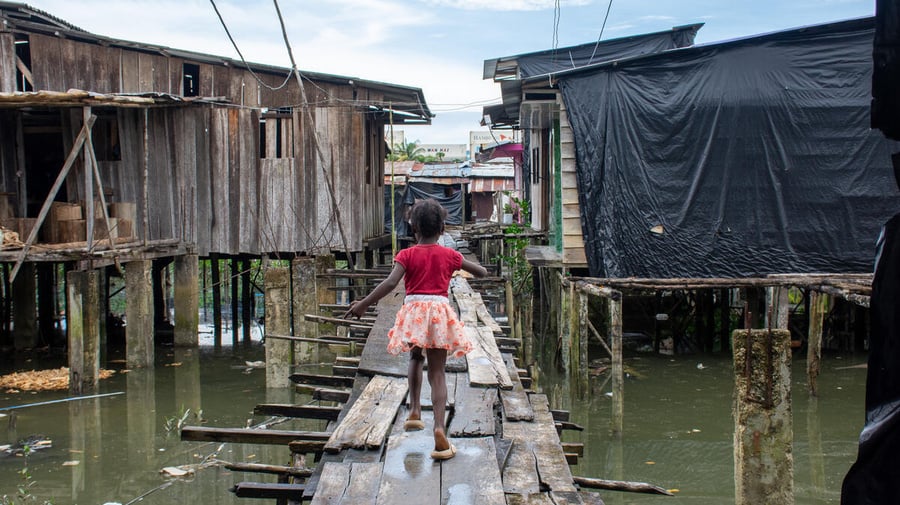
The Republic of Korea acceded to the 1951 Refugee Convention and its 1967 Protocol in 1992 and enacted its first stand-alone Refugee Act in 2013, marking a significant advancement in domestic refugee protection.
Amid shifting demographics and a critical labour shortage, immigration reform gained political momentum. The government introduced unprecedented policies, including the regularization of undocumented children and long-term visas for foreign workers in depopulated regions. UNHCR is actively engaging with policymakers to ensure refugees and asylum-seekers are considered for inclusion in these reforms, particularly through complementary pathways. At the same time, concerns arose with proposed amendments to the Refugee Act expanding grounds for exclusion and deportation. UNHCR is closely monitoring this development and advocating for safeguards to uphold the principle of non-refoulement.
Legislative efforts to implement universal birth registration (UBR) also gained traction, supported by broad societal consensus. UNHCR remains optimistic about its adoption, recognizing its potential to prevent statelessness.
UNHCR maintains close cooperation with the government, judiciary, National Human Rights Commission, NGOs, civil society, and persons of concern to improve protection frameworks and treatment of asylum-seekers and refugees. Internationally, RoK dramatically scaled up its Official Development Assistance (ODA) in 2024, contributing USD 66.7 million to UNHCR – a 172% increase. Korea's enhanced support, including a fourfold rise in unearmarked contributions, underscores its ambition to become a top 10 global ODA donor by 2027. Its participation in key UN bodies – UNSC, ECOSOC, and the Human Rights Council – further reflects its growing influence on global refugee issues.
The Republic of Korea as a donor
Find out more about the funds raised by the government and private sector in the Republic of Korea to support UNHCR.
Office contact details
The UNHCR Representative in the Republic of Korea
Street and mailing address:
5F, Seoul N Square,
110, Toegye-ro, Jung-gu,
Seoul 04631, Republic of Korea
Phone:
+82 2 773 7011
Fax:
+82 2 773 7014
Email:
[email protected]
Time zone:
GMT +9
Working hours
- Monday: 9:00 - 18:00
- Tuesday: 9:00 - 18:00
- Wednesday: 9:00 - 18:00
- Thursday: 9:00 - 18:00
- Friday: 9:00 - 18:00
- Saturday: closed
- Sunday: closed



